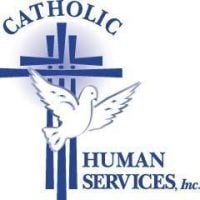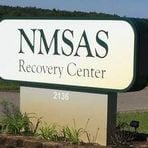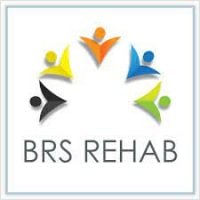Mission Teens - The Lion's Den MBTC
Drug Rehab Center in Roscommon, Michigan
- Opioid Addiction
- Dual Diagnosis
- Drug Addiction
- Alcoholism
Mission Teens - The Lion's Den MBTC is a drug and alcohol rehabilitation center in Michigan that offers a range of treatments and methods to help individuals recover from addiction.
About Mission Teens - The Lion's Den MBTC in Michigan
Mission Teens - The Lion's Den MBTC is a drug treatment facility located in Roscommon, MI. Founded in (?), this 20-bed facility offers services to individuals suffering from alcoholism, dual diagnosis, opioid addiction, and drug addiction. The Lion's Den MBTC provides a range of levels of care to meet the diverse needs of its patients, including aftercare support, inpatient treatment, intensive outpatient programs, and outpatient services.
The Lion's Den MBTC at Mission Teens offers a comprehensive range of services for individuals struggling with addiction and substance abuse. Their team of dedicated professionals provides personalized treatment plans that address the unique needs and challenges of each patient. The facility utilizes evidence-based treatment methods to help individuals overcome their addiction, such as counseling, therapy sessions, group support meetings, and medication-assisted treatment when appropriate. With a focus on holistic healing and recovery, Mission Teens - The Lion's Den MBTC strives to empower individuals on their journey towards long-term sobriety and improved overall wellness.
Genders
Ages
Modality
Additional
Conditions and Issues Treated
Many people who struggle with opioid addiction need to attend specific programs like methadone , Suboxone or Vivitrol clinics.
These types of programs will provide the patient with legal, prescription medications that can help them overcome their cravings for illegal opioids like heroin or fentanyl . If the patient has a chronic condition like Hepatitis C, they must undergo treatment before they can begin taking these medications.
Levels of Care Offered
This center offers a variety of custom treatment tailored to individual recovery. Currently available are Aftercare Support, Drug Rehab, Inpatient, Intensive Outpatient, Intervention, Outpatient, with additional therapies available as listed below.
Inpatient treatment is an intensive program that takes place when a patient checks into a rehabilitation facility. The treatment includes detoxification and counseling sessions, which are round the clock. Outpatient treatments are also available, but inpatient care is advised as the first step of rehabilitation.
Intensive rehab ensures the patient stays in a substance-free atmosphere, improving treatment success rates. The patient participates in group therapy for motivation from other patients who have overcome addiction. Family members are also involved in providing emotional support throughout the program.
An intensive outpatient program is usually the first phase of addiction treatment. It provides relief for those who are addicted, but are not ready to commit to an inpatient setting. Typically, the patient lives at home and is able to work or go to school. IOPs consist of a daily 3 to 5-hour program, and there is a required number of hours per week. Most patients go to IOP between 20 and 40 hours per week. The patient attends group counseling and individual therapy throughout the duration of treatment. They also meet daily with their therapist to discuss how it’s going and where they are in the recovery process.
The goal here is to teach patients healthy coping skills, such as stress management and identifying thoughts and behaviors that lead to relapse. The implementation of these skills will be useful as the individual transitions into the next phases of treatment.
An outpatient treatment program is set up to help with alcohol or drug addiction, or a co-occurring disorder. The patient must attend the Michigan facility for their therapy and other programs but are able to return home each night. The frequency of mandatory attendance decreases after much of Mission Teens - The Lion's Den MBTC‘s program is complete.
Intervention services can be beneficial for people who have not been able to overcome drug and alcohol addiction on their own. It is recommended for individuals whose addiction has led to dangerous or life-threatening circumstances.
Intervention services are beneficial for:
- People who have relapsed after completing other forms of addiction treatment.
- People with drug addictions that have led to dangerous health conditions, such as HIV.
- People who are at risk of losing their family, home, or job due to addiction.
- People who are having difficulty overcoming drug and alcohol addiction on their own.
- An intervention can be conducted by professionals, or by loved ones of an addict. If the person being intervened on agrees to enter addiction treatment after the intervention, the next step would be to choose a treatment program.
If they do not agree to enter addiction treatment after the intervention, loved ones may choose to go back to the drawing board and try another form of treatment. They may also choose to not receive any further treatment, but there are usually other factors in play that may make it difficult for people to stop using drugs or alcohol.
Aftercare is a term that’s used to refer to any sort of continuing care offered for a drug addict who has voluntarily entered a rehabilitation program. This type of care can be provided in several settings, including outpatient therapy sessions after the addict has completed an inpatient program. There are also 12-step support groups, such as Alcoholics Anonymous, which can provide additional help for addicts trying to stay sober.
Therapies & Programs
Group Therapy is utilized by drug treatment centers like Mission Teens - The Lion's Den MBTC to provide the recovering drug addict with a platform to talk about their feelings and experiences. It also provides for an opportunity to learn from other addicts who have successfully overcome their addiction.
Group Therapy is employed in lectures, seminars, or discussion groups (the latter two are typically conducted as “therapy groups”). It is recommended that all group members be recovering addicts for this type of therapy to work (though it does not exclude others with lived experience).
Training in improved life skills helps those recovering from addiction feel more capable of self-care. Mission Teens - The Lion's Den MBTC are daily skills that give the person the tools they need to survive.
The therapy covers practical activities like cooking, job hunting, social interaction, and money management, helping to fill in the knowledge gaps caused by addiction.
These life skills help the person self-manage their recovery and stay on track. It also reduces relapse risk as they gain confidence in their day-to-day abilities.
Payment Options Accepted
For specific insurance or payment methods please contact us.
Additional Details
Specifics, location, and helpful extra information.
Roscommon, Michigan 48653 Phone Number(989) 275-0929 Meta DetailsUpdated November 25, 2023
Staff Verified
Mission Teens - The Lion's Den MBTC Patient Reviews
There are no reviews yet. Be the first one to write one.
Roscommon, Michigan Addiction Information
Michigan has the second-highest rate of drug and alcohol abuse in the nation. Heroin is linked to more than 50% of the state's hepatitis C cases. Marijuana is the drug most often associated with crimes in Michigan, followed by methamphetamines. Opioids alone are responsible for almost 20% of all drug overdose deaths in Michigan.
Treatment in Nearby Cities
- Alpena, MI (69.6 mi.)
- Kingsford, MI (192.0 mi.)
- Bessemer, MI (298.2 mi.)
- Saint Joseph, MI (191.0 mi.)
- Wakefield, MI (293.1 mi.)
Centers near Mission Teens - The Lion's Den MBTC
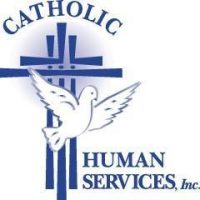

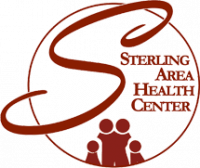
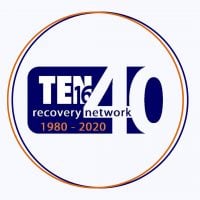
The facility name, logo and brand are the property and registered trademarks of Mission Teens - The Lion's Den MBTC, and are being used for identification and informational purposes only. Use of these names, logos and brands shall not imply endorsement. RehabNow.org is not affiliated with or sponsored by Mission Teens - The Lion's Den MBTC.

